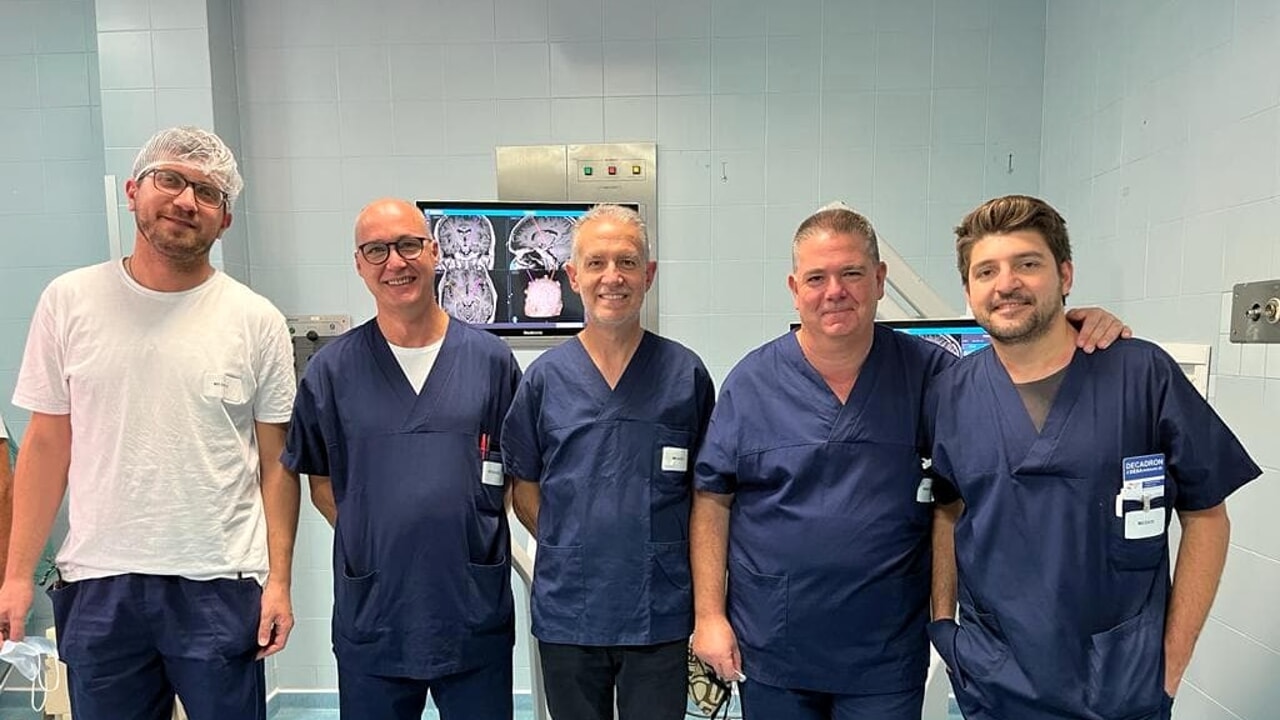Foggia Neurosurgery Department, Dr. Colamaria: "Technology and humanity to treat the brain and spine, restoring hope to patients."

The Neurosurgery Department of the Policlinico di Foggia , directed by Antonio Colamaria , is now a leading center for the treatment of central and peripheral nervous system disorders. From spinal cord injuries to brain tumors, to the new frontier in Parkinson's disease, the Complex Unit stands out for its integration of technological innovation, a multidisciplinary approach, and comprehensive patient care. "Our mission is to combine innovation and humanity," emphasizes Colamaria. "Technology is an extraordinary tool, but people are always at the center. We want to offer excellent care at the Policlinico di Foggia, avoiding so-called journeys of hope and ensuring comprehensive care, from diagnosis to rehabilitation."
"The Neurosurgery Department of the Foggia Polyclinic today represents a constantly growing example of excellence, capable of combining high technology, professional expertise, and humane patient care," stated Extraordinary Commissioner Giuseppe Pasqualone . "In recent years, we have witnessed significant development in the department, both organizationally and technologically, with the introduction of state-of-the-art equipment and the adoption of increasingly advanced and minimally invasive surgical techniques. The path we have undertaken is a source of pride for the Foggia Polyclinic, which will continue to vigorously support innovation, research, and training, with a view to ensuring excellent care for its patients."
From the neck to the sacrum: spinal neurosurgeryOne of the leading areas is spinal neurosurgery, dedicated to the treatment of spinal trauma and pathologies. Procedures are performed along the entire vertebral axis, from the occiput to the sacrum, both anteriorly and posteriorly.
"Our goal," explains Colamaria, "is to restore stability, reduce pain, and improve quality of life." Among the most complex cases are C1-C2 cervical fractures, among the most delicate of all, now treated with techniques that stabilize the vertebrae without compromising mobility. Equally important are degenerative conditions, such as lumbar stenosis or herniated discs, which can compromise independence and well-being.
Minimally Invasive Surgery: The Revolution in EndoscopyAlongside traditional surgery, the Neurosurgery Department at the Foggia Polyclinic has introduced a minimally invasive approach to the treatment of lumbar disc herniation, using endoscopic techniques. The hernia is removed through an incision of just a few millimeters, without damaging the surrounding muscles or bones. "It's a true revolution," Colamaria explains, "which allows patients to get up and about just a few hours after surgery, with fewer complications, less blood loss, and significantly shorter recovery times."
Brain tumors: the value of teamworkIn recent years, the number of patients treated with brain tumors in Foggia has increased: glioblastomas, meningiomas, and metastases. To address these challenges, the Neurosurgery Department has established a multidisciplinary team comprising neurosurgeons, neurologists, radiation oncologists, oncologists, anesthesiologists and resuscitators, geneticists, pathologists, and physiatrists. "Each case is discussed collegially," explains Colamaria, "so we can choose the most appropriate strategy before surgery, evaluating risks, benefits, and postoperative therapies. After surgery, we monitor patients with ongoing follow-up and genetic testing, which helps us personalize treatment. It's teamwork that reduces risks and increases the chances of success."
The technological equipment is among the most advanced: the neuronavigator guides the surgeon like a GPS inside the brain; microscopes with fluorescent filters distinguish tumors from healthy tissue; intraoperative ultrasound allows for real-time assessments, and neurophysiological monitoring reduces the risk of postoperative deficits. In the most complex cases, Awake Surgery is used, with the patient awake and cooperative during the procedure, to preserve vital functions such as speech and movement. 
An innovative development concerns deep brain stimulation (DBS), now applied with frameless methods to Parkinson's disease. This involves the implantation of thin intracerebral electrodes connected to a generator that delivers controlled and programmable electrical stimuli. "With DBS," says Colamaria, "we can significantly reduce tremors, rigidity, and slowness, restoring autonomy to patients who no longer respond to drug therapies. The novelty is the use of frameless systems, which make the procedure faster, more precise, and less invasive, improving safety and comfort."
Care and research: an integrated pathWhat sets Neurosurgery at the Policlinico di Foggia apart is its comprehensive patient care, which extends beyond surgery to include rehabilitation and careful follow-up. "Every patient is unique," Colamaria reiterates, "and our job is to develop personalized care plans, with the input of various professionals and the support of families. In this way, we can restore dignity, hope, and quality of life."
In addition to clinical practice, the Neurosurgery Department participates in scientific studies and research programs, contributing to the growth of neurosurgical knowledge and the training of young specialists. "The future of medicine depends on research and collaboration," concludes Colamaria. "Only by integrating expertise, technology, and humanity can we continue to grow and offer our region increasingly high-quality care."
Follow us on Instagram – Click here Get free news on your Facebook Messenger. Here's how.İmmediato









